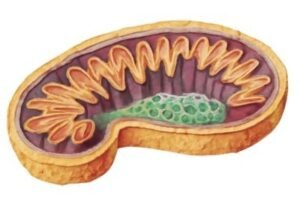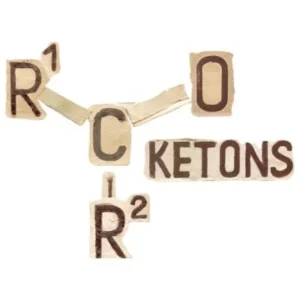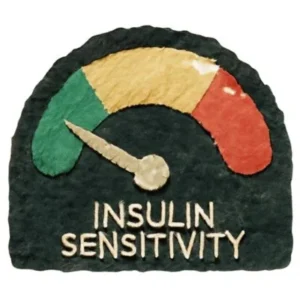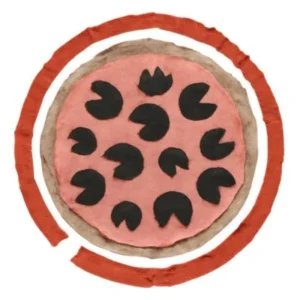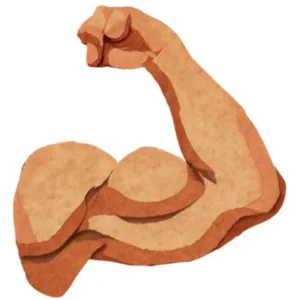If you’ve ever told someone you’re fasting, you’ve probably heard this:
“Don’t do that — you’ll slow down your metabolism!”
Table of Contents
ToggleIt sounds scary, doesn’t it?
As if skipping breakfast might somehow make your body stop burning energy.
But here’s the truth — your body is far smarter than that.
Short fasts don’t make your metabolism sluggish. They make it sharper, cleaner, and more efficient.
At Vaidikway, we see fasting not as starvation — but as restoration.
It’s not about depriving your body; it’s about giving it space to function the way nature designed it to.
Let’s uncover what really happens inside your body during a fast — and why “starvation mode” is one of the biggest myths in nutrition.

🧠 Where the “Starvation Mode” Myth Came From
The term “starvation mode” began circulating decades ago when diet culture was obsessed with calorie counting.
It came from the idea that if you eat less, your body “freaks out,” starts conserving energy, and stops burning fat — a mechanism seen in long-term famine, not short, mindful fasting.
Here’s the difference:
Many people confuse intermittent fasting with starvation, but the two are completely different in both purpose and biological response.
- Real starvation happens only after weeks or months of complete lack of nutrition, when the body has exhausted all energy reserves and begins breaking down muscle tissue for survival. It leads to nutrient deficiency, muscle loss, and hormonal shutdown, pushing the body into a state of emergency and conservation — a pure state of survival.
- In contrast, intermittent fasting occurs within just hours of intentional food rest. It doesn’t deplete the body — it restores it. During fasting, the body actually preserves lean muscle, burns stored fat efficiently, and triggers hormonal balance rather than shutdown. It’s a natural rhythm of repair and renewal — a conscious state of healing, not deprivation.
💬 Skipping a few meals does not equal starvation. It equals activation.
🔬 What Actually Happens During a Short Fast
When you fast for 12, 16, or even 24 hours, your metabolism doesn’t slow down — it becomes more efficient.
Let’s break it down step-by-step:
⚡ 1. Insulin Drops, Fat Burning Begins
After 8–12 hours of not eating, insulin (the fat-storage hormone) decreases.
This allows your body to start burning stored fat for fuel instead of relying on constant sugar intake.
Result → steady energy, fewer cravings, and clearer focus.
🔥 2. Adrenaline & Growth Hormone Increase
Studies show that short-term fasting actually raises levels of norepinephrine (adrenaline) and human growth hormone (HGH) — both of which increase metabolism and preserve muscle.
These hormones keep you alert and active — a biological response designed to help you “hunt” when food isn’t available.
Result → boosted metabolic rate (up to 14% higher during short-term fasting).
🧬 3. Mitochondria Become More Efficient
Fasting trains your mitochondria — your cells’ energy factories — to work smarter, not harder.
This improves fat oxidation and lowers oxidative stress.
Result → your metabolism doesn’t slow; it upgrades.
💆 4. Digestive Rest Enhances Absorption Later
Your gut works continuously when you eat all day.
Fasting gives it time to reset — improving enzyme function and nutrient absorption during eating windows.
Result → better digestion, less inflammation, more energy.
🧘♀️ The 3 Phases of a Short Fast
Understanding these phases helps you see that fasting is rhythmic — not stressful.
- Fed State (0–4 hours)
- During this phase, your body is busy digesting and absorbing nutrients from the food you’ve eaten.
- What happens: Insulin levels rise, directing glucose into your cells for immediate energy or storage.
- Benefit: Efficient nutrient absorption and energy availability.
- Fasting State (4–16 hours)
- After a few hours without food, insulin levels begin to drop, and your body shifts from burning glucose to using stored fat for energy.
- What happens: The transition from glucose to fat metabolism begins — your fat stores start to unlock.
- Benefit: Fat burning increases, mental clarity improves, and inflammation begins to lower.
- Deep Fasting (16–24 hours)
- In this deeper fasting phase, your body enters a powerful state of self-repair.
- What happens: Growth hormone rises, autophagy (cellular cleanup) activates, and damaged cells begin to recycle.
- Benefit: Cellular repair, anti-aging effects, and complete metabolic renewal.
💫 Your metabolism doesn’t “shut down” — it simply changes gears.
🩸 What Science Says — Fasting Boosts Metabolism
A 2016 study in the Journal of Clinical Endocrinology & Metabolism found that short-term fasting (less than 72 hours) increased metabolism by up to 14% due to higher adrenaline levels.
Another study from the Obesity Journal concluded that intermittent fasting improved insulin sensitivity, fat oxidation, and resting energy expenditure — all signs of a healthy metabolism.
In simple terms —
Fasting teaches your body how to run more efficiently on its own stored energy.
That’s not slowing down.
That’s metabolic intelligence.
🌿 Starvation vs. Metabolic Healing — The Key Differences
- Duration
Starvation lasts for weeks or even months, when the body is completely deprived of nutrition.
Fasting, on the other hand, lasts for only a few hours or a single day, done intentionally to let the body rest and heal.
- Goal
Starvation is an act of forced deprivation — there’s no choice involved.
Fasting is a form of intentional rest, chosen consciously to support health and renewal.
- Fuel Source
During starvation, the body breaks down muscle tissue for survival.
During fasting, the body intelligently switches to fat utilization for energy.
- Hormonal Response
Starvation increases cortisol (the stress hormone) and slows down metabolism.
Fasting increases growth hormone, enhances repair, and boosts metabolic efficiency.
- Emotional State
Starvation creates panic, weakness, and mental fatigue.
Fasting brings calmness, focus, and mental clarity, as the mind becomes steady and alert.
- Result
Starvation leads to damage and exhaustion.
Fasting results in healing, balance, and renewal — the very essence of the Vaidik way of living.
Your body doesn’t interpret mindful fasting as danger — it interprets it as opportunity.
🌼 What Actually Slows Down Metabolism
If fasting doesn’t slow metabolism, what does?
Let’s clear that up too.
🚫 1. Chronic Undereating
Eating too little for too long — below your body’s basic energy needs — signals stress, leading to muscle loss and slower metabolic rate.
🚫 2. Overexercising Without Nutrition
Intense workouts with insufficient food intake can exhaust your adrenals and thyroid.
🚫 3. Poor Sleep
Lack of quality sleep decreases growth hormone and insulin sensitivity — two pillars of metabolic health.
🚫 4. Stress & Cortisol
Chronic mental or emotional stress mimics starvation signals, lowering metabolic flexibility.
✨ Fasting done calmly, with awareness, doesn’t cause stress — it relieves it.
🧘♂️ Why Your Metabolism Loves Short Fasts
Short fasts act like mini workouts for your metabolism — activating fat-burning pathways and cellular renewal without overburdening the body.
Here’s why they work so beautifully:
- They train your metabolism to switch easily between carbs and fat (metabolic flexibility).
- They regulate hunger hormones (ghrelin and leptin) so you feel satisfied longer.
- They reduce inflammation, which keeps your mitochondria efficient.
- They stabilize blood sugar, preventing post-meal crashes.
The result?
Your body becomes a smart hybrid engine — not a tired, overfed machine.
🍽️ How to Practice Short Fasts Safely
Follow these simple steps to experience all the benefits — with none of the fear.
🌙 Start Small
Begin with a 12-hour fast (7 PM to 7 AM).
Then extend gradually to 14 or 16 hours over a week or two.
💧 Stay Hydrated
Drink 2–3 liters of water daily. Add lemon, mint, or rock salt if needed.
Hydration keeps metabolism steady and supports detox.
🧂 Mind Electrolytes
During fasting, your body loses sodium and potassium.
Replenish them naturally with coconut water, pink salt, or herbal teas.
🕯️ Eat Nutrient-Dense Meals
Break your fast with real food — not junk.
Focus on:
- Protein (lentils, paneer, eggs, tofu)
- Healthy fats (ghee, nuts, olive oil)
- Fiber (vegetables, fruits)
🧘♀️ Rest & Breathe
Your body isn’t under attack — it’s healing.
Avoid high stress, and let the process feel sacred, not rushed.
⚠️ When Fasting Can Go Wrong
Like any practice, fasting needs balance.
If you:
- Eat too little for too long
- Skip electrolytes or hydration
- Train excessively while fasting
- Feel dizzy or anxious
Then it’s time to pause, re-evaluate, and restore nourishment.
Vaidikway emphasizes intelligent fasting, not obsessive control.
Healing happens in peace, not pressure.
🧬 Real-Life Analogy — Fasting Is Like Cleaning a House
Think of your metabolism like your home.
When you’re constantly cooking, eating, and leaving dishes around, your house never truly gets clean.
But when you pause for a while — stop bringing in new mess — you finally have time to wash, wipe, and rearrange everything.
That’s what fasting does.
It gives your body the pause it needs to clean house.
And when the cleaning’s done, your body doesn’t slow down.
It shines brighter.
🌸 The Emotional Side — From Fear to Freedom
Many people fear fasting because they associate hunger with weakness.
But hunger isn’t the enemy — it’s communication.
It’s your body saying:
“Give me time to reset.”
When you learn to sit through small waves of hunger calmly, you’ll notice something magical — they pass.
And behind that, there’s silence, strength, and clarity.
That’s the true healing of fasting — not physical, but emotional.
🪷 The Vaidikway View — Fasting as a Return to Rhythm
In Vaidik tradition, fasting was never about diet — it was about discipline with compassion.
A way to return to your body’s rhythm, your inner awareness, and gratitude for food itself.
When you fast mindfully:
- Your body heals.
- Your mind clears.
- Your emotions balance.
And your metabolism?
It doesn’t slow — it sings.
🌺 Final Thoughts
Short fasts do not push your body into starvation mode.
They awaken it.
They bring back the rhythm your body has been craving beneath the noise of constant eating.
At Vaidikway, we teach fasting as harmony — not hunger.
When you give your body rest, it doesn’t rebel.
It remembers.
💬 Starvation is fear. Fasting is faith.
🌿 Ready to Fast Without Fear?
Join the Vaidikway Beginner Fasting Program — a structured journey to help you fast safely, heal naturally, and understand your body’s signals.
👉 Start Your Healing Journey Today
Because fasting is not about going without food — it’s about coming home to yourself.


